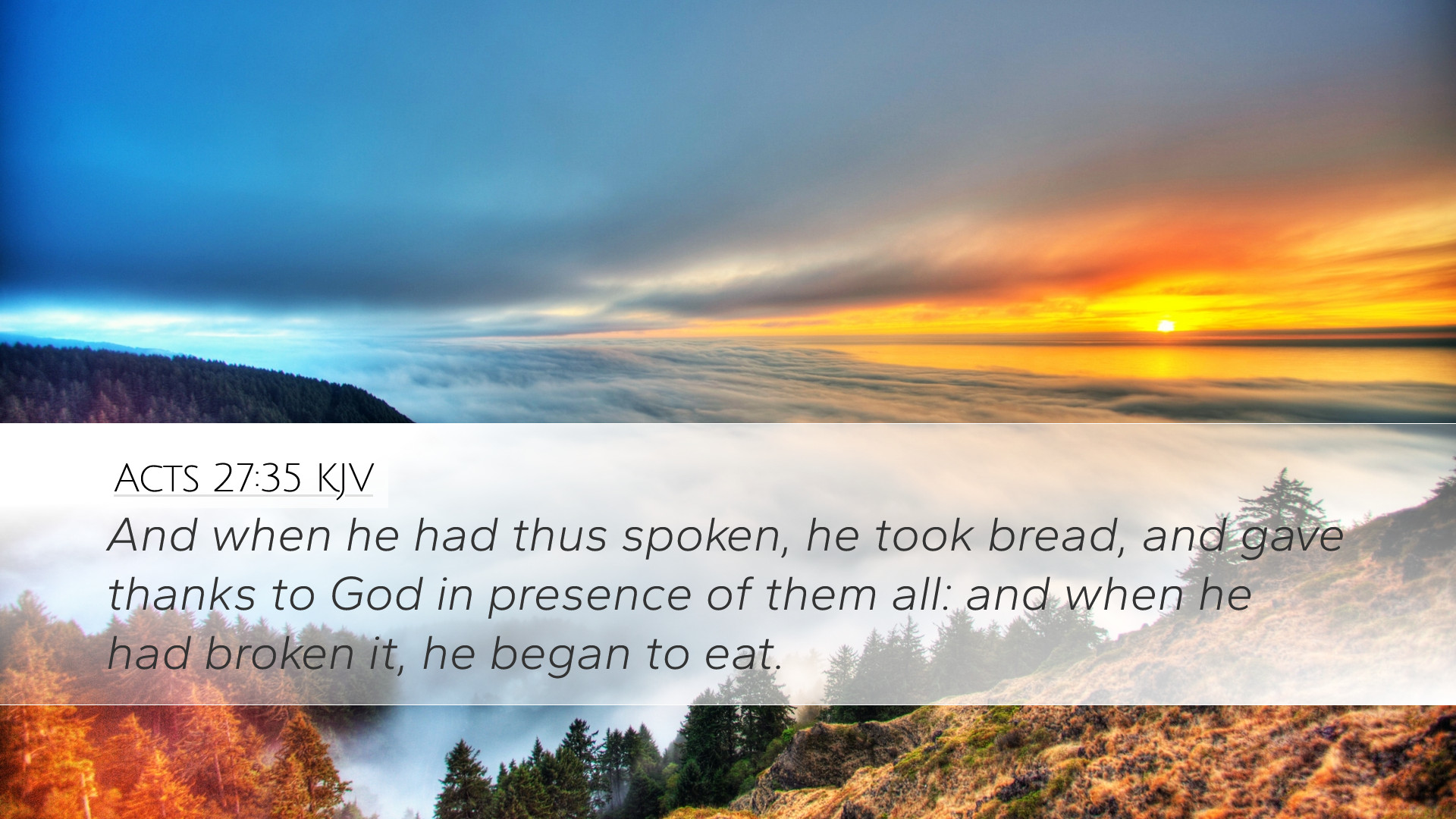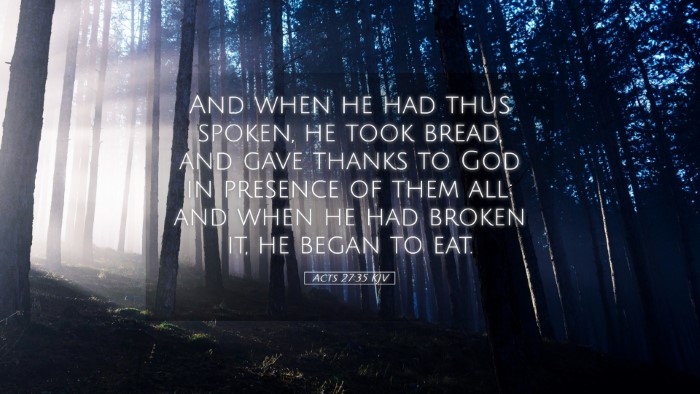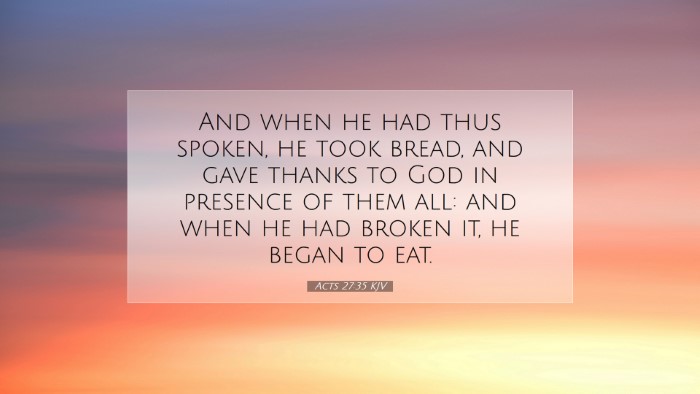Commentary on Acts 27:35
Verse Reference: Acts 27:35 - "And when he had said this, he took bread, and gave thanks to God in presence of them all: and when he had broken it, he began to eat."
Contextual Background
This verse occurs during Paul's journey to Rome, where he is being transported as a prisoner. The ship is caught in a fierce storm, resulting in fear and despair among the crew and passengers. Paul, having received assurance from God that they would all be saved, encourages them to eat as a means of physical and spiritual sustenance.
Exegetical Insights
Matthew Henry’s Commentary: Henry emphasizes Paul's leadership in this dire situation, showcasing his dependence on God and the power of prayer. Paul’s act of taking bread and giving thanks serves several purposes: it reassures the fearful sailors, acknowledges God's provision, and exemplifies the spiritual discipline of gratitude amidst crisis.
Albert Barnes’ Notes: Barnes points out that Paul's actions illustrate the importance of maintaining routine actions of faith, such as eating and giving thanks, even in perilous circumstances. This act signifies faith in God’s promise and allows the crew to refocus on sustenance for their bodies, as well as their souls.
Adam Clarke’s Commentary: Clarke elaborates on the significance of the breaking of bread. He posits that this moment reflects a deeper meaning of community and shared experience among those present. Paul’s example encourages communal support and the healing power of shared meals in times of adversity.
Spiritual and Theological Reflections
This verse encapsulates the strength found in community and faith-driven action during turbulent times. Paul’s prayer of thanksgiving is prominent, reflecting a perspective that honors God even amidst distress. The act of eating together serves as a vital reminder of God’s presence and sustaining grace.
Importance of Thanksgiving
- Gratitude as a Response: Thanksgiving is not only a method of worship but also a response to God's faithfulness. Paul's action reminds all believers to express gratitude, even when faced with uncertainty.
- Community in Crisis: The gathering of diverse individuals under the leadership of Paul illustrates the unifying effect of shared faith. Collectively engaging in an act of thanks can foster unity and resilience.
The Eucharistic Implication
Some commentators draw parallels between this event and the Last Supper, suggesting not only a physical sustenance but also an anticipation of spiritual nourishment. Paul breaking bread can be seen as a foreshadowing of Christian practices that emphasize the significance of communion and fellowship in Christ.
Application for Today’s Believers
- Faith in Adversity: Just as Paul demonstrated faith in a life-threatening storm, today’s believers are reminded to uphold their faith and seek God’s presence in trials.
- Practicing Gratitude: Unlocking the power of gratitude during difficult times can change one's perspective, infusing hope into the most daunting situations.
- Building Community: This passage encourages believers to support one another, reflecting the essence of the church as a body where every member contributes to the collective faith and encouragement.
Concluding Thoughts
Acts 27:35 serves as a poignant reminder of how our responses to adversity can reflect our faith and obedience to God. The act of giving thanks and sharing in fellowship during crisis reveals profound truths about God’s sustaining power and the importance of community in our spiritual journeys. Believers are called to emulate Paul’s example, trusting in God's promises and encouraging one another through acts of shared gratitude and sustenance.


